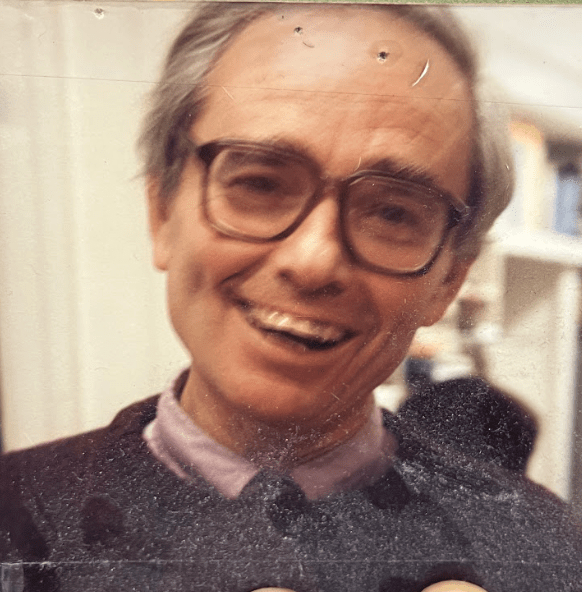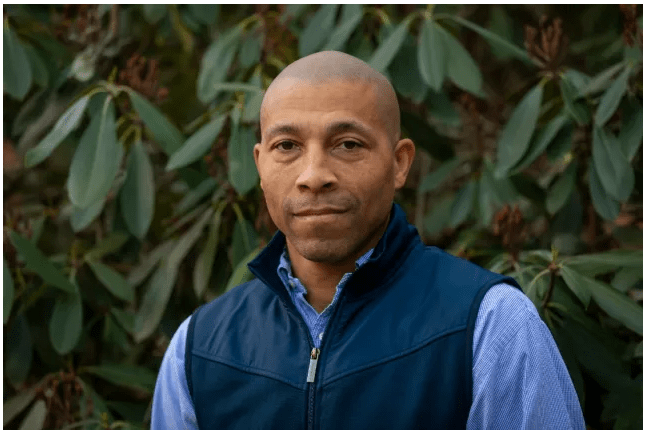In April, the Boston Writing Project lost an important collaborator, thinker and writer. Steve Gordon was deeply loved by students and teachers and had such a significant impact on our learning as a Board. The Board spent some time writing something for Steve that we’d like to share.

Steve!
Dr. Stephen Gordon, you resisted
Just call me Steve, Mr. Gordon, or for some Mistah
Giant – Inquirer,
Master – Teacher
Linguistic Scholar
YOU touched so many –
and while you were not well enough
to actively participate in our NEH initiative
WRITING BOSTON’S FUTURE,
YOU were the listening partner we needed at every twist and turn
Indefatigable
-Denise
In 2014, when I was a Calderwood Writing Initiative fellow, Steve asked me to uncover my assumptions about my inquiry project on students’ responses to research and writing. I’m sure it was not the first time someone had asked me to look at the subtext of my pedagogical claims—how they tied into my larger beliefs about school, young people, the nature of learning—but something about Steve’s way of doing it felt like a bolt of lightning. I have not been the same since.
I loved Steve. I loved our meandering conversations at Snowden, in UMass classrooms, in my car on the way to the JFK T stop after Writing Project meetings, once over tea at his house in Arlington (an invitation into his life for which I will always cherish). I love the way that his approaches to school were so infused with curiosity (the way that he would crack a smile as he drew more and more of my ideas out, uncovering thoughts I didn’t know I had), with a fundamental assumption of equality with his students. I decided soon after meeting him that Steve was the kind of teacher that I wanted to be, that I still aspire to be: that deeply serious levity, that fundamental openness, that love. -Josh

In some cosmic way, Steven Gordon may have been distantly related to the great naturalist and prolific writer Stephen Jay Gould. Both luminaries seem to have stumbled upon the truism that the more you learn, the more you recognize the vast scope of your ignorance and how every waking moment is an opportunity to engage in personal betterment. Operating under the slightly mysterious Zoom handle of stevewing, our Steve wrote effortlessly, or at least it seemed, and despite the assurance with which he wielded the pen, seemed to often betray a youthful need for validation – which is to say that he was quintessentially human. Steve liked to interact with people, to listen to them and to learn with them. Perhaps he saw himself happily ensconced in an eternal Vygotskiesque zone of proximal development where he was at his best surrounded by folks who, like him, preferred to seek out the best in others. We’d do well to honor him by carrying on his message of thoughtful reflection and quiet consideration. We miss you dearly Steve. -Nikan
I was blessed to work with Steve for a brief period of time through the BWP. He was a kind, welcoming great soul of a person and always reminded me of my grandfather. I will miss our conversations about teaching and the world. My deepest condolences to his family for this loss. I pray that each of you find peace and healing over time. May he rest in peace. We miss you! -Surbhi
For Steve, a write into the evening for the man who always shared.
There is something special about the routine of writing into the evening, a routine that is held sacred for the Boston Writing Project. Like any routine, it can sometimes wear on you or drag away minutes from what might be deemed as more “important.” But Steve never let the routine falter. He proudly, vulnerably, expertly and loudly used the time to write; write deeply, write honestly, write beautifully. And he always shared.
It was a reminder, not only of the importance of routine, but the importance of leaning in and engaging with the thinking, doing and sharing that helps us maintain our identity. It was a reminder of the power of words, even those that were mundane and especially those that were touching. He reminded us of how this routine, with the silent thought and the public sharing, centers us in the work.
For his sharp wit, deep thinking, friendly banter and brilliant writing that we as the Boston Writing Project remember Steve, and share with him a deep appreciation for his work, love and Write into the Evenings…-Katie
In his short piece, “I Teach Who I Am”, featured in the book “What Keeps Teachers Going,”Steve Gordon writes, “I teach who I am. What I value and believe arises from my personal background and experience–whom I have loved and who has loved me; what has encouraged and hurt me; and the idealistic quests involving myself, other people, and American society” (pg. 30). This quote encapsulates the kind of person Steve Gordon was. He was reflective, empathetic, curious, passionate and never afraid to be vulnerable. When I met Steve Gordon during the Boston Writing Project I was immediately impressed by how willing he was to go deep on any topic. When he described his ritual of writing letters to each of his students, I was floored by his dedication. Later on, when I was working on a Calderwood project, Steve took such interest in what I was trying to research, he sent me articles to help me out. Whenever I was with Steve Gordon I recognized a love of coming together with others who want to do better always.
I will always remember Steve and try to follow his example. -Amy
Steve was a quiet warrior and giant among us. May they be comforted in his brilliant light. – L’Merchie
Steve taught me about the incredible gift it is for someone to offer their presence and attention. Steve was brilliant and offered insights and strategies, jokes and warmth and wisdom, but what I will never forget is how much he was just always fully present for everyone, always glad to see everyone, and always listening and really hearing everyone. I loved to see the moments when someone would talk their ideas in a meeting and Steve would always have a curious question that reflected how deeply he’d been listening and how important their ideas were to him. Steve always showed how to value people and to offer them the gift of time and attention. Everyone was important to Steve, and he had time for everyone, and he managed this in the midst of an educational space that was always going the other direction where everything was deficits and hurry and about numbers, Steve stopped to pay attention and was about people, appreciating the details and the moments of their thoughts. It’s hard to find words enough for him which is funny because he was the person who didn’t require any special effort to talk to–I never felt tongue-tied with Steve. I feel like he was like a walking embodiment of Peter Elbow’s Believing Game: Steve believed in everyone, and I don’t think I ever would have understood how important and profound that was before I met him. -Mary






